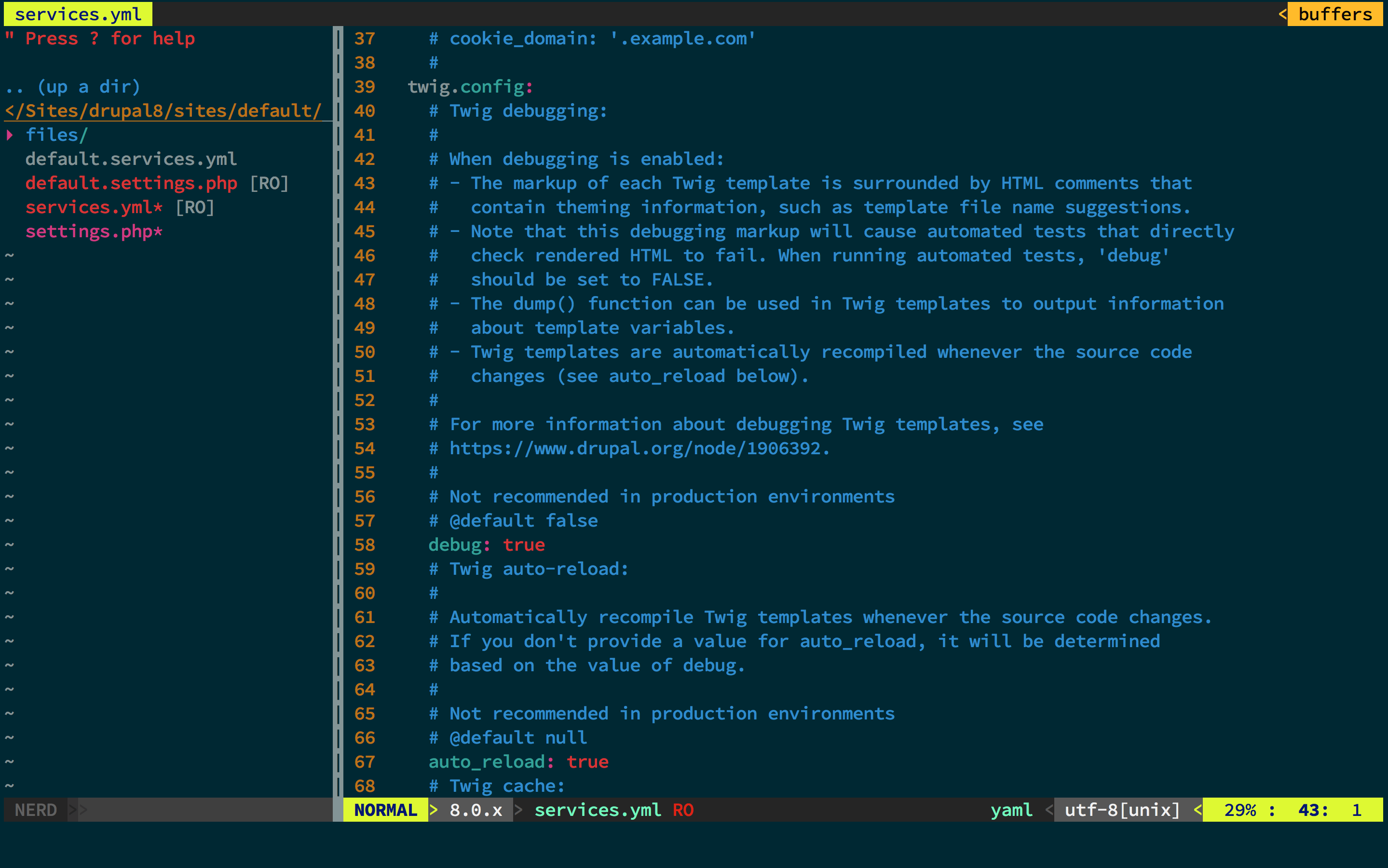Twig debug
A new feature in Drupal core is the Twig debug tool. It allows developers to trace from which template files certain markup comes. To enable Twig Debugging, set the debug parameter in the twig.config to true.

sites/default/services.yml:
parameters:
twig.config:
debug: true # originally false
When opening the web console, HTML comments are added:
<!-- FILE NAME SUGGESTIONS:
* html--front.html.twig
* html--.html.twig
x html.html.twig
-->
<!-- BEGIN OUTPUT from 'core/modules/system/templates/html.html.twig' -->

A system like this has been backported to Drupal 7. It can be activated by adding
$conf['theme_debug'] = TRUE;insidesettings.php
Theme debug suggestions
The files with (*) are theme hook suggestions, and can be used to override the template file in more specific and less generic use cases. The file marked with (x) is template file that is currently being used to print the markup. The comments end with the file that is currently being using to print the markup.
<!-- FILE NAME SUGGESTIONS:
* html--front.html.twig
* html--.html.twig
x html.html.twig
-->
<!-- BEGIN OUTPUT from 'core/modules/system/templates/html.html.twig' -->
Debug a variable
To print all the available variables (in a template file), the dump()-function can be used. To print the content of a specific variable you have to pass the name of the variable as a parameter to the function.
Note: When using the
dump(), you might stumble upon a white screen of death. The command is recursively traversing and printing all the variables, which consumes too much memory.
# Only print the available keys
{{ dump(\_context|keys) }}
Print all available variables:
{{ dump() }}
Note: This is the equivalent of
dump(_context), see below.
Print content of $foo variable:
{{ dump(foo) }}
Print content of $foo and $bar variables:
{{ dump(foo, bar) }}
There are two global variables in all Twig templates:
_context, which contains all variables that are passed to the template file. When usingdump()without passing in a variable, the_contextwill be printed._charset, which references the (current) charset.
Using Devel and Kint
The dump() can be useful to debug a single variable, but when dumping all the variables the output can be overwhelming. This is where the Devel module jumps in. This contrib module contains several submodules. One of them is Kint, a tool to present debugging data in a nice UI (instead of long strings on the screen).
# Download the Devel module
drush dl devel
# Enable the Devel & Kint module
drush en devel kint
Once enabled, all the dump() commands can be replace with kint() - or kint(foo) - for better debugging.
Read more